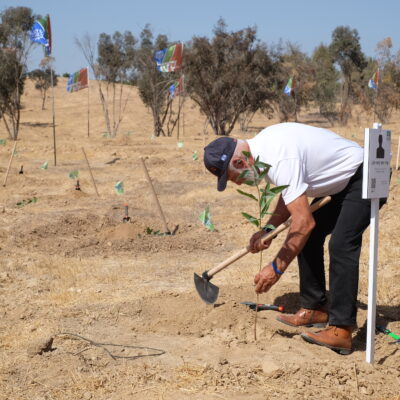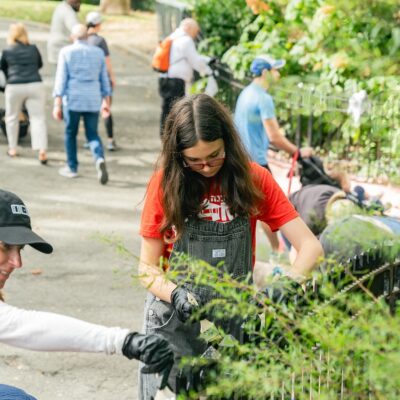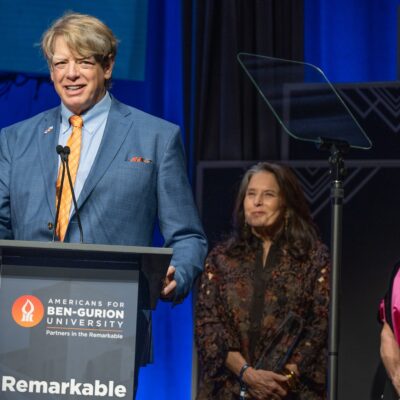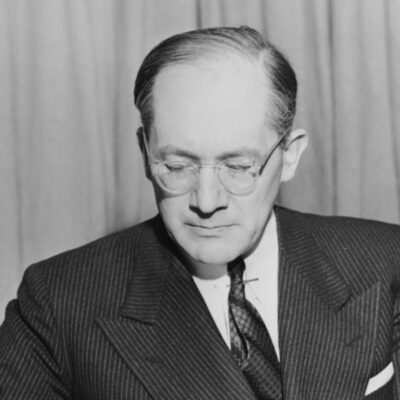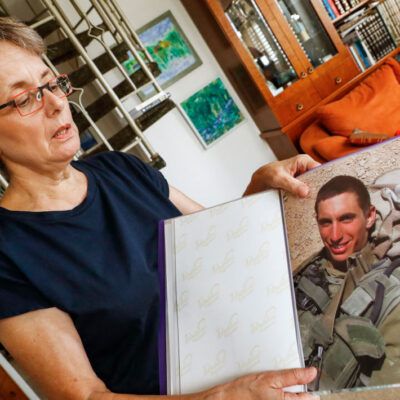Opinion
READER RESPONDS
Walls alone won’t hold: Filling the well of Jewish life
Since Oct. 7, 2023 Jewish philanthropy has surged to meet the crisis of antisemitism. Hundreds of millions of dollars have been mobilized for campus advocacy, security and public messaging campaigns designed to combat hatred and misinformation. With the release of the living hostages, Jonathan Greenblatt rightly reminds us that “the existential crisis that the Jewish Diaspora has experienced over these last 24 months is not going away.”
In his own recent essay, Andrés Spokoiny notes that much of the spending on “combatting antisemitism” is uncoordinated and fragmented, with outcomes that are hard to measure (“In the fight against antisemitism, passion isn’t enough,” eJewishPhilanthropy, Sept. 26). But even if every dollar were spent with perfect strategy and every result measured with precision, defense alone would not be sufficient. Our community’s survival cannot rest solely on building stronger walls. It must also depend on filling the well at the center, cultivating Jews who are confident, literate and inspired by the richness of their tradition.

Jimmy Chang/Unsplash
Jewish learning as the positive core
For over 50 years, the Pardes Institute of Jewish Studies in Jerusalem has witnessed the transformative power of Jewish education. Alumni of Pardes now lead synagogues, schools, Hillels, federations and organizations across North America. What unites them is not a defensive crouch against antisemitism, but a deep confidence born of literacy and rootedness.
The experience of wrestling with Torah in the beit midrash, of hearing the diversity of voices across centuries, cultivates precisely the engagement and resilience Jewish life requires. A Jew who can open Torah, Talmud, or Midrash is not easily shaken by outside hostility. They carry within them a reservoir of meaning and belonging that cannot be taken away.
The crisis we face is not only internal fragmentation but disengagement. Many young Jews are uncertain not just of what Judaism teaches, but why it should matter. At its best, deep learning cultivates leaders who act with integrity and humility, individuals grounded enough in their tradition to serve others with wisdom and care.
As Bari Weiss put it in the New York Times back in 2018, “Jewish pride without Jewish knowledge is just hollow identity politics.” Pride alone may give us slogans; knowledge gives us depth and conviction. If all we can do is declare our Jewishness to the outside world but cannot articulate its content, values, or meaning to ourselves, we will have safeguarded the shell but not the substance of Jewish life.
Defense may keep antisemitism at bay, but education nurtures the joy, creativity and confidence that make Jewish life worth defending in the first place.
One such example from the previous century is the Bücherei des Schocken Verlag (Library of the Schocken Verlag), a series of books on Jewish life and literature, published in Germany from 1933 to 1939 by subscription. Its 83 volumes encompassed Bible, rabbinic literature, poetry, history, mysticism and philosophy. The first volume, a translation of Isaiah’s prophecies of comfort by Martin Buber and Franz Rosenzweig, was published six months after Nazi book burnings in Berlin. The last volume, by the philosopher Hermann Cohen, was printed in the late months of 1939.
This renaissance of Jewish identity and Jewish learning in the face of unparalleled antisemitism is both inspiring and noteworthy. America certainly isn’t Germany in the 1930s. However, in Weiss’s words, if “our best strategy is to build, without shame, a Judaism and a Jewish people and a Jewish state that are not only safe and resilient but also generative, humane, joyful and life-affirming,” then it will require reclaiming and embracing the texts and ideas that have sustained and nourished us through the ages.
To be sure, we must fund advocacy groups and communal defense initiatives. But if we neglect investment in Jewish literacy, learning, and engagement, we will be left with secure buildings filled with Jews unsure of what their Judaism means.
Strengthening Jewish life from within requires a broad communal vision. It means investing in the spaces where Jews encounter tradition in ways that shape their identity: supporting Jewish day schools; funding Jewish summer camps; creating incubators for Jewish life and learning in the 20s and 30s; and sustaining serious study that continues into adulthood. At every stage, Jews make pivotal choices about identity and belonging. If we do not provide compelling pathways into Jewish life, we will lose the opportunity to shape the very generation that will inherit our institutions.
Wells and walls
If security efforts are the walls around the city, Jewish learning is the well at its center. A city can survive a siege only if its well is full. Today, we are busy fortifying the walls, but we must be just as vigilant in ensuring that the well is overflowing.
Communal investments in security and advocacy are vital, but they cannot guarantee Jewish continuity by themselves. Surveillance cameras and locked doors can protect Jewish spaces, but they cannot fill those spaces with meaning. Public relations campaigns may improve perceptions of Jews among our neighbors, but they cannot teach the next generation why Judaism matters to them personally.
There is also a risk in framing Jewish identity almost exclusively around antisemitism. When Jewishness is defined primarily by the hostility of others, it can become reactive and defensive, rather than inspiring and life-affirming. The message we want young Jews to hear is not that being Jewish means being targeted, but that it means being connected, challenged and empowered.
As Spokoiny has reminded us, the communal response to antisemitism is complex and often messy. But even if every effort were perfectly coordinated, focusing solely on defense would still be insufficient. Our responsibility is not only to keep Jews safe, but to keep Jewish life meaningful. The Schocken series reminds us that cultural renaissance is as necessary as political defense. Weiss reminds us that pride without knowledge is hollow. And our own experience at Pardes reminds us that Jewish learning cultivates leaders who can withstand external threats because they are fortified internally.
Defense matters, but it is depth — in learning, in culture, in building community — that makes our people resilient and our future secure.
Dammara Markowitz is the chair of the Israel Board of Directors of the Pardes Institute of Jewish Studies.
Rabbi Leon A. Morris is the president and CEO of the Pardes Institute of Jewish Studies.

 Add EJP on Google
Add EJP on Google